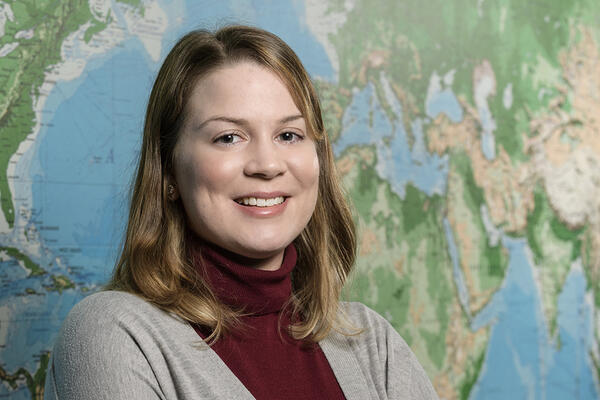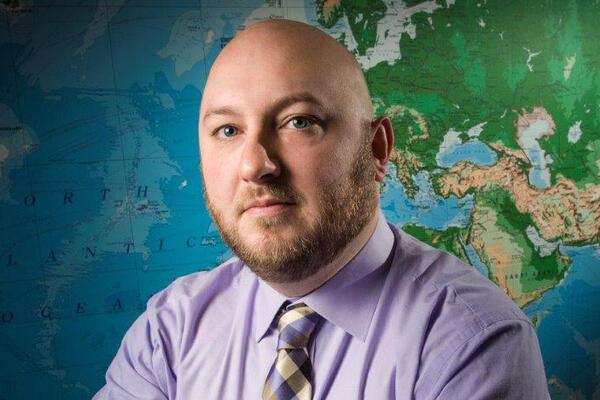On this page:
- Why Choose International and Comparative Politics?
- Success Stories
- Academics and Curriculum
- Admission
- Frequently Asked Questions
Why Choose International and Comparative Politics?
You want:
- to change the world by first understanding it better.
- a program that produces difference makers.
- a program that is tailored to your area of interest.
- a program that is flexible to your time, availability, and commitment level.
Success Stories
Academics and Curriculum

Students who pursue the Research Track take a minimum of 30 credit hours of approved coursework, including:
- 9 credit hours of core seminars (IR Theory, Research Design, Theories of Comparative Politics)
- 5 elective courses in the student’s major area of concentration:
- Area Studies
- Intelligence Studies
- Democracy and Rights
- Conflict and Security
- 3 credit hours of graduate statistics (or acquired or demonstrated proficiency in advanced foreign language)
- 8 credit hours of thesis or project research
The program is completed with a thesis or applied project, done in close consultation with program faculty.
Students who pursue the Exam Track take a minimum of 30 credit hours of approved coursework, including:
- 9 credit hours of core requirements (IR Theory, Research Design, Theories of Comparative Politics)
- 7 elective courses in the student’s major area of concentration:
- Area Studies
- Intelligence Studies
- Democracy and Rights
- Conflict and Security
- 3 credit hours of graduate statistics (or acquired or demonstrated proficiency in advanced foreign language)
- 1 credit for PLS 7970 (Graduate General Examination)
Students tailor the program to meet their interests. Students are encouraged to include education abroad opportunities.
Students may pursue practicum credit, including internships, in conjunction with this capstone.
More program information will be available in the academic catalog beginning Fall 2026.
Admission
- Admission to this program is competitive.
- Applications are reviewed in the spring for fall admission.
- Students usually need two years to complete the program.
- Applications are done through the Wright State Graduate School.
- Your application will include the following:
- essays
- letters of recommendation
- transcripts
- The priority deadline for all materials is March 1.
- Qualified applicants will be interviewed by phone or in person.
- Decisions will be announced by April 15.
- Contact the program director, Dr. Vaughn Shannon (vaughn.shannon@wright.edu), with questions.

